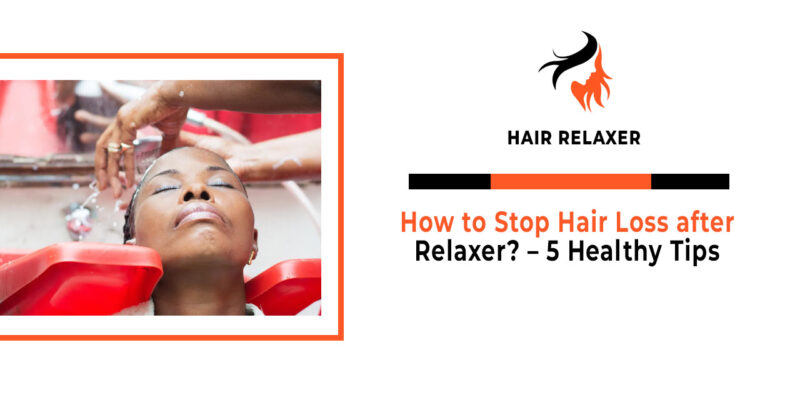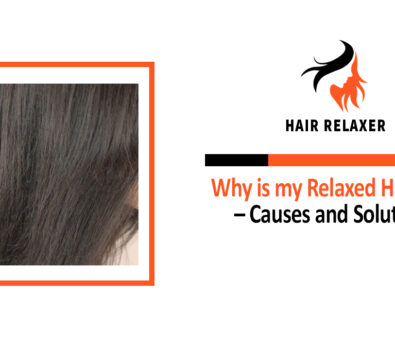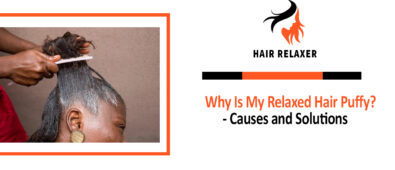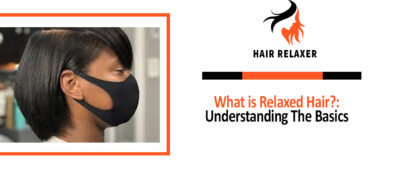If you’ve recently undergone a relaxer treatment and noticed excessive hair loss, you’re not alone.
Because…
Relaxers can weaken your hair, causing it to break and fall out. Fortunately, there are steps you can take to prevent further hair loss and promote healthy hair growth.
In this article, we’ll explore the best ways to stop hair loss after a relaxer, from avoiding harsh chemicals to nourishing your hair with deep conditioning treatments.
Say goodbye to hair loss and hello to beautiful, healthy hair with our expert tips and advice.
Do Relaxers Damage Hair?
This question I have received many times from clients do relaxers cause hair loss?
Well, the answer is quite vague and it depends on the formulation as well as hair texture and scalp.
Because….
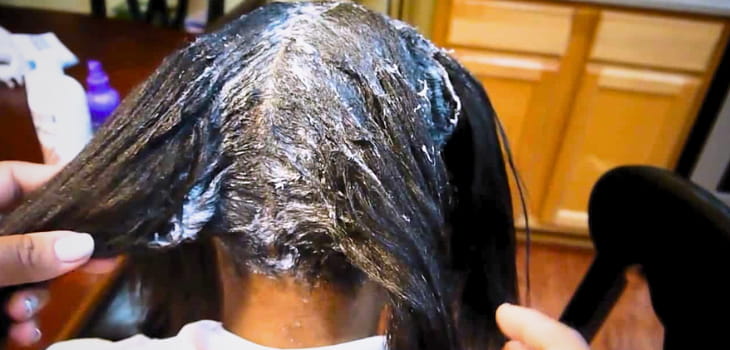
Relaxers are chemical treatments that are designed to break down the natural curl pattern of the hair, making it straighter and easier to manage. While relaxers can provide a sleek and polished look, they can also cause damage to the hair if not used correctly.
The main ingredient in most relaxers is sodium hydroxide, which is a strong alkali that can break down the protein bonds in the hair.
Over time, this can weaken the hair and cause it to become brittle, dry, and prone to breakage. Additionally, relaxers can also irritate the scalp and cause chemical burns if left on for too long or applied incorrectly.
However, it’s important to note that not all relaxers are created equal. There are some newer relaxer formulations that are designed to be gentler on the hair and scalp and contain ingredients such as oils and vitamins to help nourish and protect the hair.
Understanding the Causes of Relaxed Hair Breakage
I used to love getting relaxer treatments for my hair because they made it so much easier to manage. But over time, I started noticing that my hair was breaking more easily and didn’t seem as healthy as it used to.
Here are some of the reasons why my relaxed hair was breaking, and why yours might be too:
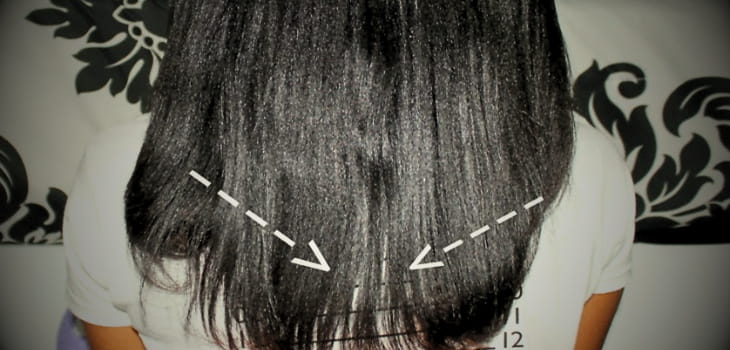
Chemical damage
Relaxers work by breaking down the protein bonds in your hair, which can weaken the strands and make them more prone to breakage. If you’re getting relaxer treatments too frequently, or leaving the relaxer on for too long, it can cause chemical damage that leads to breakage.
Over-processing
Overlapping relaxers can also cause over-processing, which means that the relaxer chemicals are applied to previously relaxed hair. This can cause the hair to become brittle and prone to breakage.
Lack of moisture
Relaxed hair can be more prone to dryness, which can make it more brittle and likely to break. If you’re not moisturizing your hair regularly with deep conditioning treatments, leave-in conditioners, or oils, it can lead to breakage.
Heat damage
Heat styling tools like flat irons, curling irons, and blow dryers can cause heat damage to your hair, especially if you’re using them frequently. This can cause your hair to become brittle and more likely to break.
Tight hairstyles
Tight hairstyles like braids, weaves, and extensions can put a lot of stress on your hair and cause it to break. If you’re constantly wearing your hair in tight styles, it can lead to breakage over time.
How to stop relaxed hair from breaking?
Are you tired of seeing your precious strands break and fall out after every relaxer treatment?
The feeling of disappointment and frustration can be overwhelming, but fear not – there are ways to stop relaxed hair breakage and restore your hair’s health and vitality.
We’ll explore some unconventional yet effective tips to help you combat relaxed hair breakage and keep your hair looking its best.
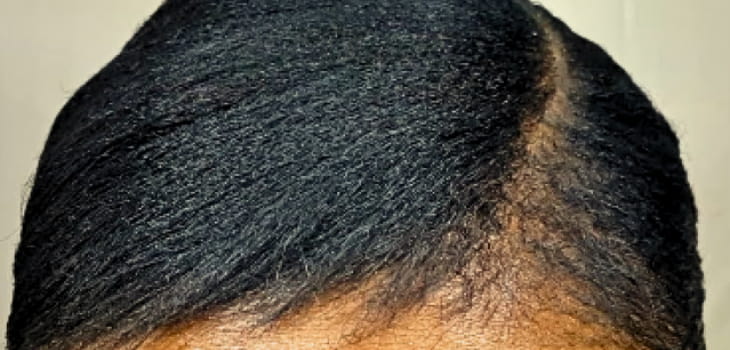
Embrace Protective Hairstyles
Give your hair a break and opt for protective hairstyles that help to prevent damage caused by everyday styling. Protective styles like braids, twists, and buns help to keep your hair ends tucked away, minimizing the chances of damage and breakage.
Nourish Your Hair with Natural Oils
One of the best ways to keep your hair healthy and strong is to nourish it with natural oils. Oils like coconut oil, olive oil, and argan oil help to nourish the hair shaft, locking in moisture and preventing breakage. These oils also contain essential vitamins and nutrients that promote healthy hair growth.
Take Supplements
Sometimes, the nutrients that we consume through our diets may not be enough to support healthy hair growth. Taking supplements like biotin, folic acid, and vitamin D can help to boost hair health from the inside out.
Avoid Harsh Chemicals
Chemical relaxers can be damaging to your hair, causing it to become weak and prone to breakage. If you’re looking to stop relaxed hair breakage, it’s important to avoid harsh chemicals and opt for more natural hair care products instead.
Protect Your Hair at Night
Sleeping with your hair uncovered can lead to friction, causing breakage and damage to your hair. To protect your hair at night, invest in a silk or satin pillowcase, or wrap your hair in a silk scarf before going to bed.
Remember, the key to success is consistency and patience – so stick to your hair care routine and watch your hair flourish!
Home Remedies for Relaxed Hair Breakage
If you’re struggling with relaxed hair breakage, you’re not alone. It’s a common problem that many people face, but the good news is that there are several natural remedies that you can try at home to help prevent breakage and promote healthy hair growth.
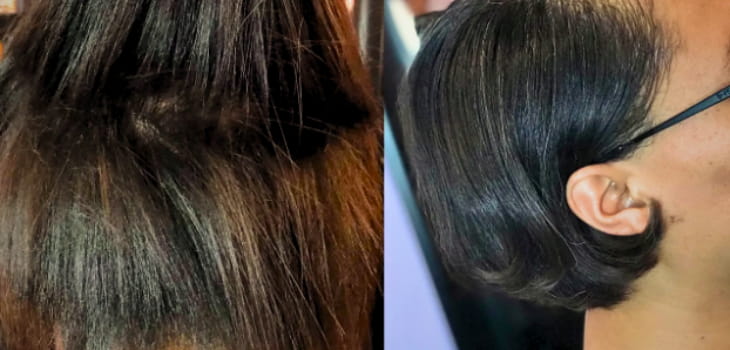
Apple Cider Vinegar Rinse
Apple cider vinegar is a natural remedy that can help to restore the pH balance of your hair and prevent breakage. Mix one part apple cider vinegar with two parts water and use it as a final rinse after shampooing your hair. The vinegar smell will disappear once your hair is dry.
Coconut Oil Treatment
Coconut oil is a natural emollient that can help to nourish and protect your hair from damage. Warm up some coconut oil and apply it to your hair, focusing on the ends. Leave it on for at least 30 minutes before rinsing it out with shampoo and conditioner.
Egg Mask
Eggs are rich in protein and other essential nutrients that can help to strengthen your hair and prevent breakage. Beat one or two eggs and apply the mixture to your hair, then cover it with a shower cap. Leave it on for 20-30 minutes before rinsing it out with cold water.
Aloe Vera Gel
Aloe Vera gel is a natural moisturizer that can help to soothe and protect your hair from breakage. Apply aloe Vera gel to your hair and scalp, focusing on the ends. Leave it on for 20-30 minutes before rinsing it out with cold water.
By incorporating these natural remedies into your hair care routine, you can help to prevent relaxed hair breakage and promote healthy hair growth.
How to Stop Hair Loss after Relaxer? – FAQs
Conclusion
In conclusion, relaxers can be a great way to achieve smooth, straight hair, but they can also cause damage if not applied properly or if the hair is not cared for properly afterward.
If you’re experiencing hair loss or thinning after a relaxer treatment, don’t despair – there are steps you can take to prevent further damage and promote hair growth.
By following the tips and home remedies we’ve discussed in this article, you can help strengthen and restore your hair to its natural, healthy state. Remember to be patient and consistent in your hair care routine, and consult with a professional stylist if you have any concerns or questions. With a little bit of effort and dedication, you can achieve the beautiful, healthy hair you’ve always wanted!

